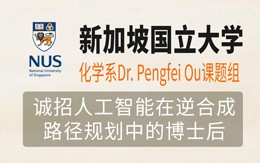Clinical and Experimental Nephrology ( IF 2.2 ) Pub Date : 2023-09-26 , DOI: 10.1007/s10157-023-02394-2
María Herrero-Goñi 1 , Amaia Zugazabeitia Irazábal 2 , Leire Madariaga 3 , Estibaliz Chávarri Gil 4 , Leire Gondra 3 , Mireia Aguirre Meñica 1
|
|
Background
Hyperuricemia contributes to decrease in kidney function and induces additional renal damage in children with acute kidney injury (AKI). Rasburicase oxidizes uric acid (UA), decreasing its serum quantities in less than 24 h.
Methods
This is a retrospective study involving hospitalized patients under 18 years of age with underlying pathology diagnosed with AKI and severe hyperuricemia treated with rasburicase over a 4-year period.
Results
We describe 15 patients from 4 days of life to 18 years (median: 4.4 years). Seventy-three percent had known underlying pathologies. All presented worsening of basal renal function or AKI data. All received the usual medical treatment for AKI without response. Twenty percent received an extrarenal depuration technique. All had hyperuricemia with a mean (± SD) of 13.1 (± 2.19) mg/dl. After rasburicase administration UA levels fell to a mean (± SD) of 0.76 (± 0.62) mg/dl (p < 0.001) in less than 24 h. In parallel, a decrease in the mean plasma creatinine was observed (2.92 mg/dl to 1.93 mg/dl (p = 0.057)) together with a significant improvement of the mean glomerular filtration rate (16.3 ml/min/1.73 m2 to 78.6 ml/min/1.73 m2) (p = 0.001)). No side effects were recorded. Kidney function normalized in all cases or returned to baseline levels.
Conclusions
Although the use of rasburicase is not routinely approved in pediatric patients with severe hyperuricemia and AKI, it has been used successfully without complications, and helped prevent progressive kidney damage. This study could serve as a basis for suggesting the off-label use of rasburicase for the management of complex pediatric patients in whom UA plays an important role in the development of AKI.
中文翻译:

拉布立酶改善高尿酸血症合并急性肾损伤儿童的肾功能
背景
高尿酸血症会导致急性肾损伤(AKI)儿童的肾功能下降并引起额外的肾损伤。拉布立酶氧化尿酸 (UA),在 24 小时内降低其血清含量。
方法
这是一项回顾性研究,涉及 18 岁以下的住院患者,其基础病理被诊断为 AKI 和严重高尿酸血症,并接受拉布立酶治疗超过 4 年。
结果
我们描述了 15 名患者,从出生后 4 天到 18 岁(中位数:4.4 岁)。百分之七十三的人知道潜在的病症。所有患者均出现基础肾功能或 AKI 数据恶化。所有人都接受了针对 AKI 的常规治疗,但没有任何反应。百分之二十接受了肾外净化技术。所有患者均患有高尿酸血症,平均 (± SD) 为 13.1 (± 2.19) mg/dl。拉布立酶给药后,UA 水平在不到 24 小时内下降至平均值 (± SD) 0.76 (± 0.62) mg/dl ( p < 0.001)。与此同时,观察到平均血浆肌酐下降(2.92 mg/dl 至 1.93 mg/dl ( p = 0.057)),同时平均肾小球滤过率显着改善(16.3 ml/min/1.73 m 2至 78.6)毫升/分钟/1.73 m 2 ) ( p = 0.001))。没有记录到副作用。所有病例的肾功能均恢复正常或恢复至基线水平。
结论
尽管拉布立酶并未常规批准用于患有严重高尿酸血症和 AKI 的儿科患者,但它已被成功使用,没有出现并发症,并有助于预防进行性肾脏损伤。这项研究可以作为建议超说明书使用拉布立酶治疗复杂儿科患者的基础,这些患者中 UA 在 AKI 的发展中发挥着重要作用。

































 京公网安备 11010802027423号
京公网安备 11010802027423号